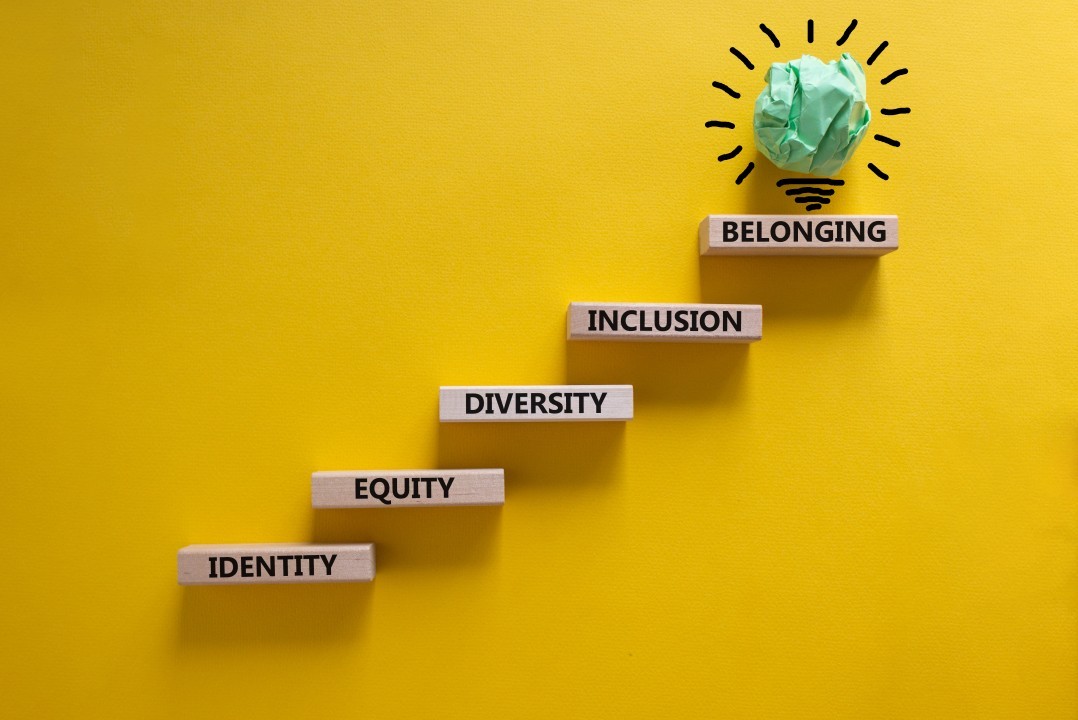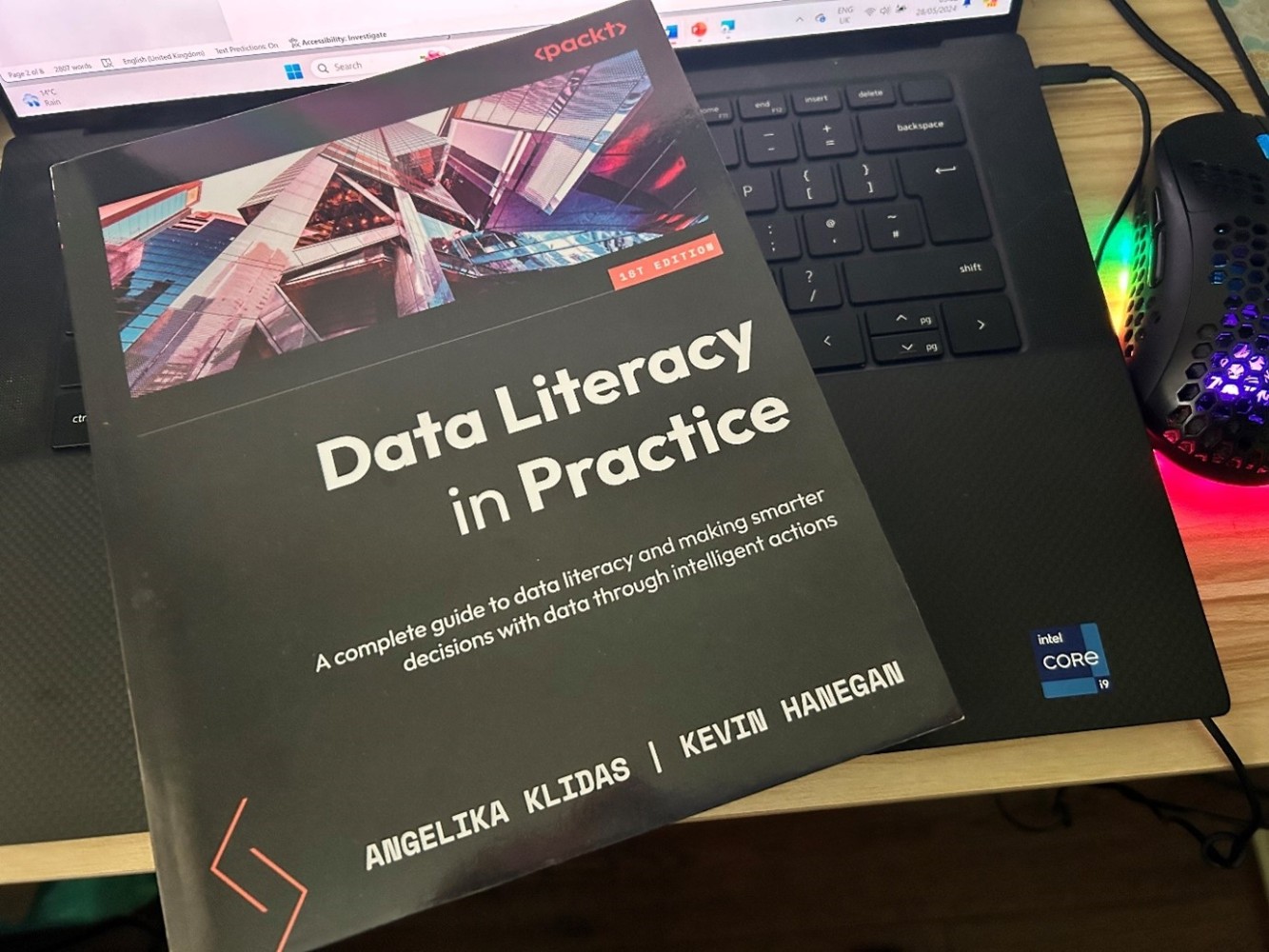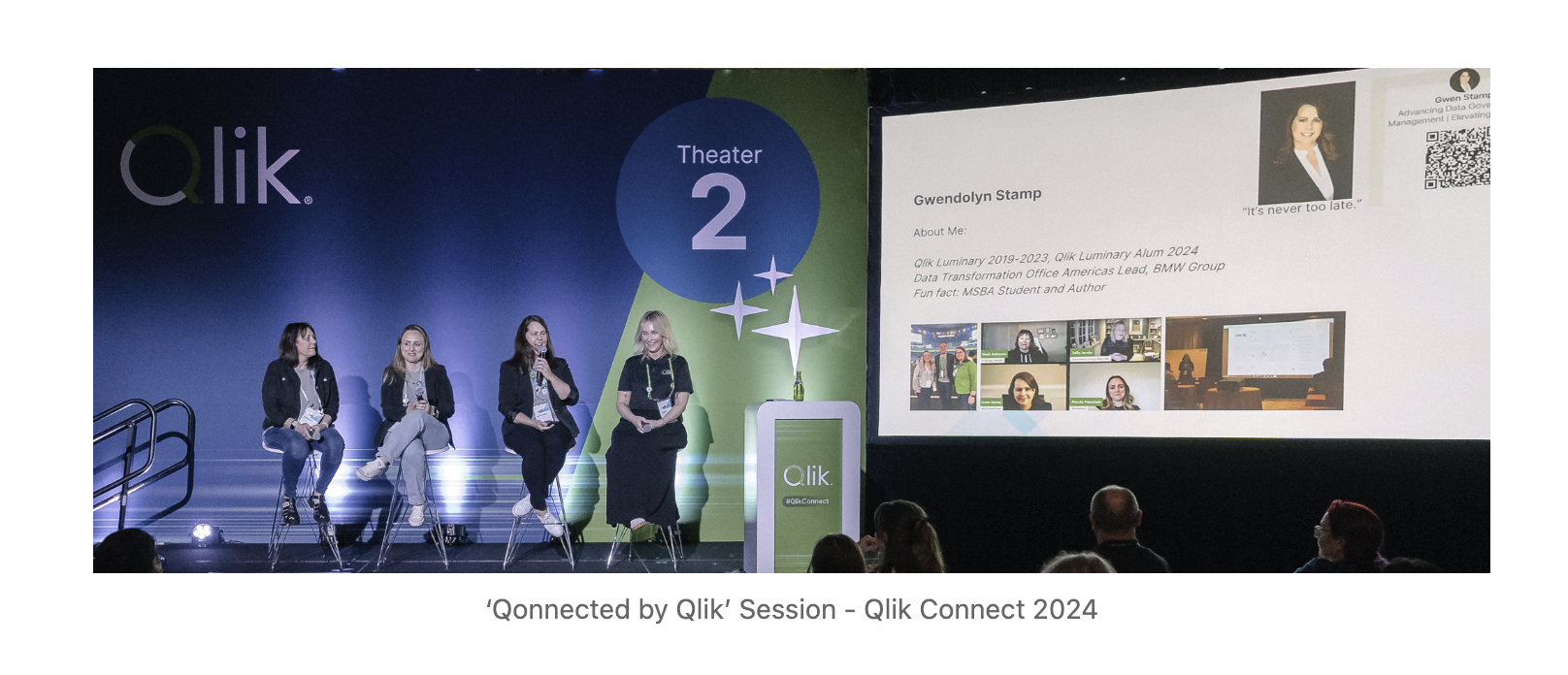Comments
- No comments found

Words matter! They help us to frame our understanding of the world and shape our perceptions, actions and interactions.
DEI or Diversity, Equity and Inclusion are words which are increasingly used but often done so interchangeably - and can hold varying meanings for different issues and groups of people.
Understood differently or treated separately, they address only a part of our human experience. Reflecting on this area and technology/data sector aspirations, the word that resonates with me the most is that of 'belonging' as it focuses on the whole.
And as research (Bain & Company) brings to the fore – the benefits of cultivating a culture of belonging are absolutely clear – from freeing employee potential to fostering an evolution of the ‘status quo’ - and with impacts across problem solving, creativity and innovation. When we feel we belong, we are living, working and socialising in an empowered space where views, beliefs and values are integrated and personal growth and collective innovation thrives.
Relating this to women working in data today, fewer females are now joining the data industry at entry level across the UK, US and the EU. In fact, new research by Harnham reveals that the number of entry-level female professionals joining the data industry has dropped significantly in the period 2022 to 2023 – falling from 35% to 11% in the UK, and from 36% to 12% in the US.
Similarly, gender pay gaps have also increased, especially within the UK where the gap has risen from 6% to 16% over the same time period. However, there are exceptions too which shows just what can be achieved - as an example in the Netherlands, women actually dominate entry level positions (60%) and the gender pay gap has fallen from 23% to 10%.
Additionally, there are more positive developments regards mid-level positions with women accounting for 37% of such roles in the UK and 39% in the US. Another increase is observed within the EU results at director level, where female representation has risen from 11% to 15% across 2022-2023. This movement is indicative of the retention and progression of female entry level candidates from previous years – where organisations are focusing on achieving high levels of talent diversity at entry level, this focus is also being directed at retaining it and we are starting to see this filter through to higher level roles too.
Encouraging more women to join the data industry involves addressing multiple factors including Education and Early Exposure, Scholarships and Financial Support, Community and Networking, Workplace Policies and Culture, Career Development and Advancement, Advocacy and Awareness, and Research and Data Collection. That’s why I’m so glad that Qlik’s annual conference, Qlik Connect, which took place in Orlando recently had an excellent and deeply embedded focus on advancing across the Diversity, Equity, Inclusion and Belonging continuum.
There are so many ways to ‘get into data’ from learning from home to attending an organised coding bootcamp, joining social communities, expressing views – a fantastic poll here - and accessing education and networking opportunities in person and online. Reading and especially from a diverse range of authors is also an excellent way to broaden perspectives and understanding – in this field I particularly recommend ‘Data Literacy in Practice’ by Kevin Hanegan and Angelika Klidas which does a fantastic job at demystifying what data literacy is and what it is not, with a practical focus on the steps you can take to improve it, both individually and at organisational level.

Additionally, there are so many skills beyond coding and technology specific domains that make a difference in data – skills like project planning and collaborative writing, but also creativity and emotional intelligence. Personally, this reflects a need to move beyond STEM to STEAM learning and raises key questions on how education should best prepare the next generation of students – and equally older adults looking to reskill - for the way in which technology reshapes our world. All of these themes were discussed at Qlik Connect! And also please feel free to check out this related podcast on considerations around the journey from STEM to STEAM available here.
If you can see it, you can be it – visibility matters! This includes the importance of celebrating the successes of women working within technology and data and I personally have found that when we are able to showcase impact that delivers shared value for business and society, that impact is magnified, especially for younger talent who are especially motivated by roles which afford the agency to contribute to social change.
In fact, the latest 2024 addition of Deloitte ’s Gen Z and Millennial Survey finds that 86% of respondents say having a sense of purpose is very or somewhat important to their overall job satisfaction and well being, and moreover, 44% have actually turned down an employer based on their personal ethics or beliefs.
Reflecting on this, one of the session’s at Qlik Connect focused on ‘Empowering Change through Data’ highlighting the importance of data in driving social impact, the personal experiences that have catalysed career development and taking a look ahead at the future of data in social change. And this is one I have included in recent school mentoring sessions with fantastic engagement, wonderful to see! The inspirational discussion includes insights from Ewa Rumprecht , VP, Programs Data and Technology at Smile Train , Ashleigh S. Chapman, JD , Human Rights Lawyer and Founder of Engage Together®, Julie Kae, Director of Sustainability and DEIB and Sally Jacobs, Qlik’s Senior Director of Social and Advocacy and I would highly recommend exploring this further!
Equally both male allies and women supporting mentoring, nurturing and sponsoring other women affords a crucial role and at Qlik Connect there was a dedicated session ‘Qonnected by Qlik’ focusing on the how of creating a data-driven organizational culture that empowers women. This brought together Gwen Stamp, Data Transformation Leader, IT Solutions Engineer and Author from the BMW Group, Steph Robinson IT BI Manager from JBS USA and Priscila J. Papazissis Paolinelli Head of Data Analytics at Vallourec.

And when we add-in recent AI and Generative AI advances where the UN has highlighted the challenge of AI mirroring gender biases in society, this focus area becomes ever more pivotal. Clearly the gender implications of AI-powered solutions depends on who develops AI, what kind of data it is trained on and what biases are ‘built-in’ – or not. A well-founded data literacy is the first step on the way to mastering AI technology and addressing these very concerns.
Seeking guidance and advice matters too! As an example, Massachusetts Institute of Technology provides a valuable digital hub here, including a highly tangible Decision Tree framework to support managers in specific areas. Additionally, organizations advocating for diversity in tech, such as the Society of Women Engineers and the National Society of Black Engineers play a key role in promoting diversity and supporting underrepresented groups.
You can also learn more about the launch of 'Women Who Qlik' here whose goal is to celebrate and spotlight women leveraging Qlik technology to drive impactful business outcomes, fostering an inclusive community that encourages and supports women in data-driven roles, while also amplifying key voices for allies.
And finally, if you or someone you know would like to feature in a new series of 365 🔥fireside 🔥interviews which place a focus on visibility, inclusion, equity and belonging within technology, data and beyond please get in touch!
Indeed, this could be a wonderful opportunity to move beyond mentoring to sponsoring and putting someone forward for this could be ‘the difference’ and it would be a privilege to support that!
All questions and feedback most welcome
Warmest wishes, Sally
A highly experienced chief technology officer, senator for advanced technologies, and a global strategic advisor on digital transformation, Sally Eaves specialises in the application of emergent technologies, notably AI, 5G, cloud, security, and IoT disciplines, for business and IT transformation, alongside social impact at scale, especially from sustainability and DEI perspectives.
An international keynote speaker and author, Sally was an inaugural recipient of the Frontier Technology and Social Impact award, presented at the United Nations, and has been described as the "torchbearer for ethical tech", founding Aspirational Futures to enhance inclusion, diversity, equity, and belonging in the technology space and beyond. Sally is also the chair for the Global Cyber Trust at GFCYBER.
Dr. Sally Eaves is a highly experienced Chief Technology Officer, Professor in Advanced Technologies and a Global Strategic Advisor on Digital Transformation specialising in the application of emergent technologies, notably AI, FinTech, Blockchain & 5G disciplines, for business transformation and social impact at scale. An international Keynote Speaker and Author, Sally was an inaugural recipient of the Frontier Technology and Social Impact award, presented at the United Nations in 2018 and has been described as the ‘torchbearer for ethical tech’ founding Aspirational Futures to enhance inclusion, diversity and belonging in the technology space and beyond.
Leave your comments
Post comment as a guest